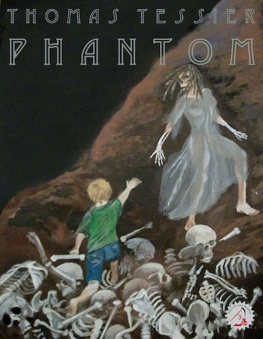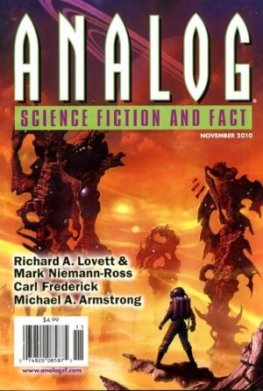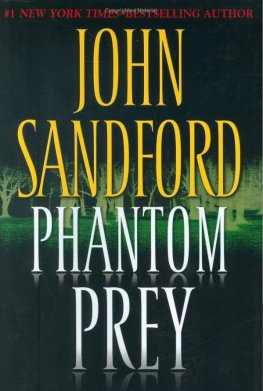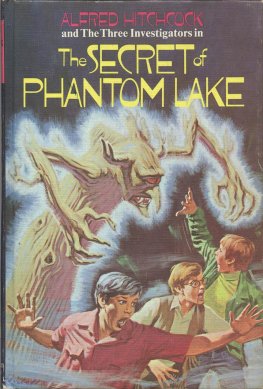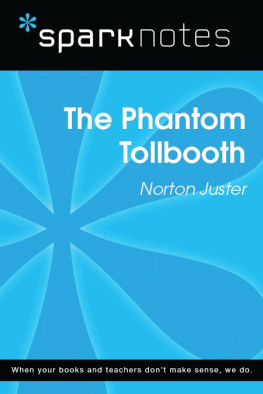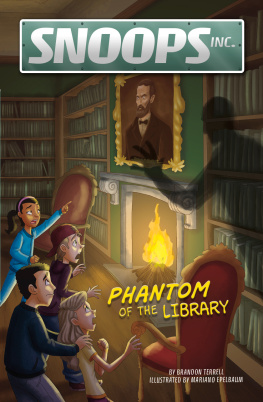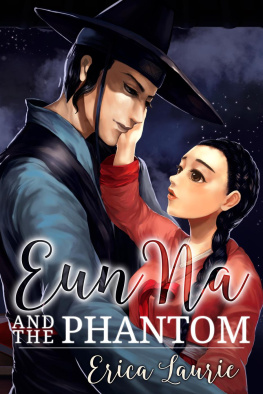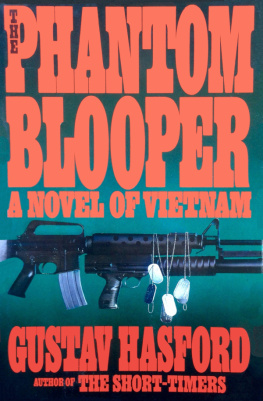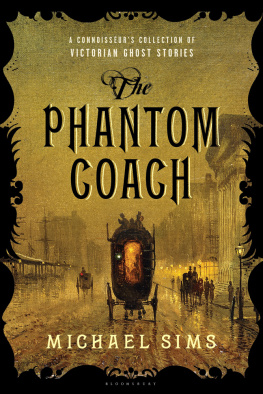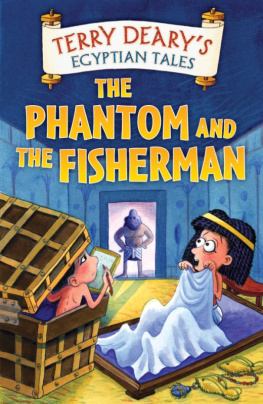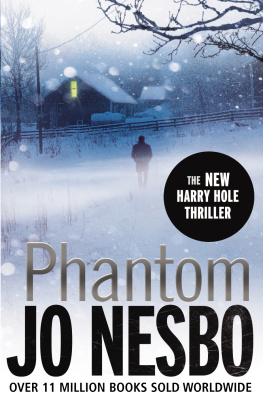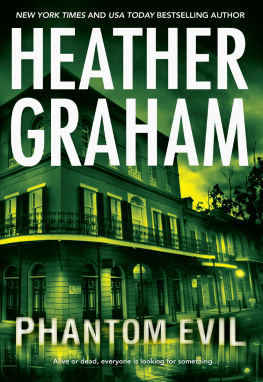Thomas Tessier - Phantom
Here you can read online Thomas Tessier - Phantom full text of the book (entire story) in english for free. Download pdf and epub, get meaning, cover and reviews about this ebook. year: 1985, publisher: Berkley, genre: Detective and thriller. Description of the work, (preface) as well as reviews are available. Best literature library LitArk.com created for fans of good reading and offers a wide selection of genres:
Romance novel
Science fiction
Adventure
Detective
Science
History
Home and family
Prose
Art
Politics
Computer
Non-fiction
Religion
Business
Children
Humor
Choose a favorite category and find really read worthwhile books. Enjoy immersion in the world of imagination, feel the emotions of the characters or learn something new for yourself, make an fascinating discovery.
- Book:Phantom
- Author:
- Publisher:Berkley
- Genre:
- Year:1985
- Rating:5 / 5
- Favourites:Add to favourites
- Your mark:
- 100
- 1
- 2
- 3
- 4
- 5
Phantom: summary, description and annotation
We offer to read an annotation, description, summary or preface (depends on what the author of the book "Phantom" wrote himself). If you haven't found the necessary information about the book — write in the comments, we will try to find it.
Phantom — read online for free the complete book (whole text) full work
Below is the text of the book, divided by pages. System saving the place of the last page read, allows you to conveniently read the book "Phantom" online for free, without having to search again every time where you left off. Put a bookmark, and you can go to the page where you finished reading at any time.
Font size:
Interval:
Bookmark:
by
A revised edition with a new introduction byBob Booth published by
Necon Ebooks at Smashwords
Revised Edition Copyright 2010 ThomasTessier
Cover Art Copyright 2010 Kellianne Jones
This ebook is licensed for your personalenjoyment only. This ebook may not be re-sold or given away toother people. If you would like to share this book with anotherperson, please purchase an additional copy for each person. Ifyoure reading this book and did not purchase it, or it was notpurchased for your use only, then please return to Smashwords.comand purchase your own copy. Thank you for respecting the hard workof this author.
* * *
Thomas Tessier: A Man of Few Words
Thomas Tessier is a man of few words, in allsenses of that phrase. For his admirers, and I count myself amongthem, he is not nearly prolific enough. Since 1970 he has publishedthree slim poetry collections, one collection of short fiction andten novels. Thats a book every three years or so, in an age whengenre writers produce at least a book a year, sometimes more.
On top of that his books are usually on theshort side. You wont find any grand epics from Mr. Tessier, norany trilogies.
Im not the only one whofeels this way. The eminent genre critic Don DAmassa said:Tessiers fiction comes only at unfortunately long intervals. Evenhis lesser works have interesting elements, and his better storiesare beautifully written and hard to forget. ( The Encyclopedia of Fantasy and HorrorFiction , Checkmark Books, 2006)
Tessier doesnt just writesuccinctly, he speaks that way. Long time genre observer StanWiater has produced a whole shelf of books that depend on authorinterviews. Ive just proof-read one of them, Dark Dreamers on Writing (forthcomingfrom Necon E-Books). The book is a collection of advice andcommentary by fifty masters of fear and suspense arranged bytopic. Some of the writers take the opportunity to go on forparagraphs (sometimes pages) to express their thoughts. NotTessier. Here are a few examples:
I dont plan. I dontanalyze, I write intuitively. and Resignation, not satisfaction,sets in around deadline time.
Doesnt that tell you all you really need toknow about his writing process? I dont picture him studying themarkets to see whats hot. I dont see him creating bulletin boardsfull of index cards, or laboring over extensive outlines. Rather Ipicture a writer, like Hemingway, alone with his notebook and No. 2pencils, telling a good story he knows and then working with it,shaping it, sculpting it, until he has to give it up.
His ideas on his chosengenre are equally condensed. Wiater captured them in anotherbook, Dark Dreamers: Facing the Masters ofFear (with Beth Gwinn). Typically,Tessiers contribution is the briefest of them all. ChannelingHemingway again though, it is what Papa called iceberg writing you only see about one sixth of what the author knows. The rest isthere, under water as it were, and if you read carefully and thinkabout the words that are there you can intuit those the writer hasleft out.
Tessier said: I dont worry about runningout of strange ideas, because what I try to write about is not somuch the mere strangeness but the people, the characters and whathappens to them. Life is full of terror and beauty, and they cantbe ever separated, and in that conflict is our endless drama.
Doesnt that brief paragraph get to theessence of why those who write horror fiction do it, and why thosewho read it do so? A few words, carefully chosen, like a fine bookcollection. Tessier only tells stories he knows and has fullydigested. As a reader you get the feeling that he has thought abouteach tale a long time and only lets you have it when he is ready,when he knows he can do it justice, when he believes it will meansomething.
Tessier was born in Connecticut in 1947, agreat year, producing Tom, Richard Laymon, Stephen King, and lessbrilliantly, me. He went to University College, Dublin, after whichhe spent several years in London. He was friends there with anotheryoung poet who was to turn to horror fiction, Peter Straub. Duringthat period he produced three slim volumes of poetry as well asthree plays that were professionally staged (but not published)before writing his first horror novel.
Phantom , the book you are getting ready to read, was published in1982, his fourth novel. Briefly, it is the story of Ned Covington,a ten-year-old boy, who explores an abandoned building near hishome and what he finds there. According to DAmassa it is a quiet,modernized ghost story that derives most of its impact fromdescriptions of the boys reactions to what he discovers and hisgrowing isolation from the world of the living.
The critical response wasimmediate. Douglas E. Winter in Faces ofFear (Berkley, 1985), published a merethree years later, listed it as one of the books that he consideredthe best of the modern generation of horror fiction. It was alsoincluded on a similar list published as an appendix to StephenJones and Kim Newmans Horror: 100 BestBooks (Carroll & Graf,1988).
Winter was also the authorof a justly famous article called Writers of Today, publishedin The Penguin Encyclopedia of Horror and the Supernatural (Jack Sullivan, ed., Viking Penguin, 1986). He said Tessier, who had earlier written The Fates (1978), provedhimself one of the major new talents in horror fiction with alittle-known supernatural romance, Shockwaves (1982), and a compellinghumanist ghost story, Phantom (1982).
In Neil Barrons Horror Literature: A Readers Guide (Garland, 1990) the reviewer (Keith Neilson, CalState Fullerton) said: A touching, scary book. The childs pointof view is handled quite believably and sensitively, and Nedsfinal hallucinatory confrontation with the woman is as harrowingand imaginative as anything in current horror fiction. Theunanswered question of whether the phantom is real or a projectionof Neds emotional confusions adds additional ambiguity and tensionto this fine novel.
Phantom was nominated for aWorld Fantasy Award in a very tough year. I know. I was a judge. Ican tell you that one of the books we considered was Ray Kinsellasclassic Shoeless Joe , the basis for the film Field ofDreams. It didnt make the finalballot.
Phantoms competition onthat final ballot was Charles L. Grants The Nestling , the book Charlie himselfconsidered his breakout novel; George R. R. Martins originaltake on vampires, FevreDream ; Gene Wolfes Sword of the Lictor , third in hisgroundbreaking New Sun series; and Nifftthe Lean , a highly original fantasy byrelative newcomer Michael Shea.
The judges (myself aside)were as distinguished as the nominees. Alan Ryan and John Coyne,two horror novelists themselves were joined by two acquisitionseditors Sharon Jarvis and Elizabeth Wollheim. We all met oneSaturday at a bar in New York (I think it was called The BrassRail). We drank, we ate, we drank some more, and we talked horrorand fantasy fiction for the better part of six hours. We all agreedon most of the categories without much debate. Best Novel was theexception. John, Alan and I argued strenuously for Phantom while Sharon andElizabeth pushed for Nifft theLean . The split was right along partylines, as it were. The men, all with horror backgrounds, supportedthe horror novel, while the women, both involved in fantasypublishing, supported the fantasy novel. Nifft the Lean won, and it is a worthybook, still, as a horror guy ....
Ive gone on too long introducing a novelthat really needs no introduction. Such is my passion for thiswriter, and particularly this book. Read it for yourself and marvelat the economy of prose and the depth of insight it contains. LikeI said. Thomas Tessier is a man of few words, but they are alwayswell chosen.
Bob Booth
Publisher, Necon E-Books
September 28, 2010
* * *
Font size:
Interval:
Bookmark:
Similar books «Phantom»
Look at similar books to Phantom. We have selected literature similar in name and meaning in the hope of providing readers with more options to find new, interesting, not yet read works.
Discussion, reviews of the book Phantom and just readers' own opinions. Leave your comments, write what you think about the work, its meaning or the main characters. Specify what exactly you liked and what you didn't like, and why you think so.

